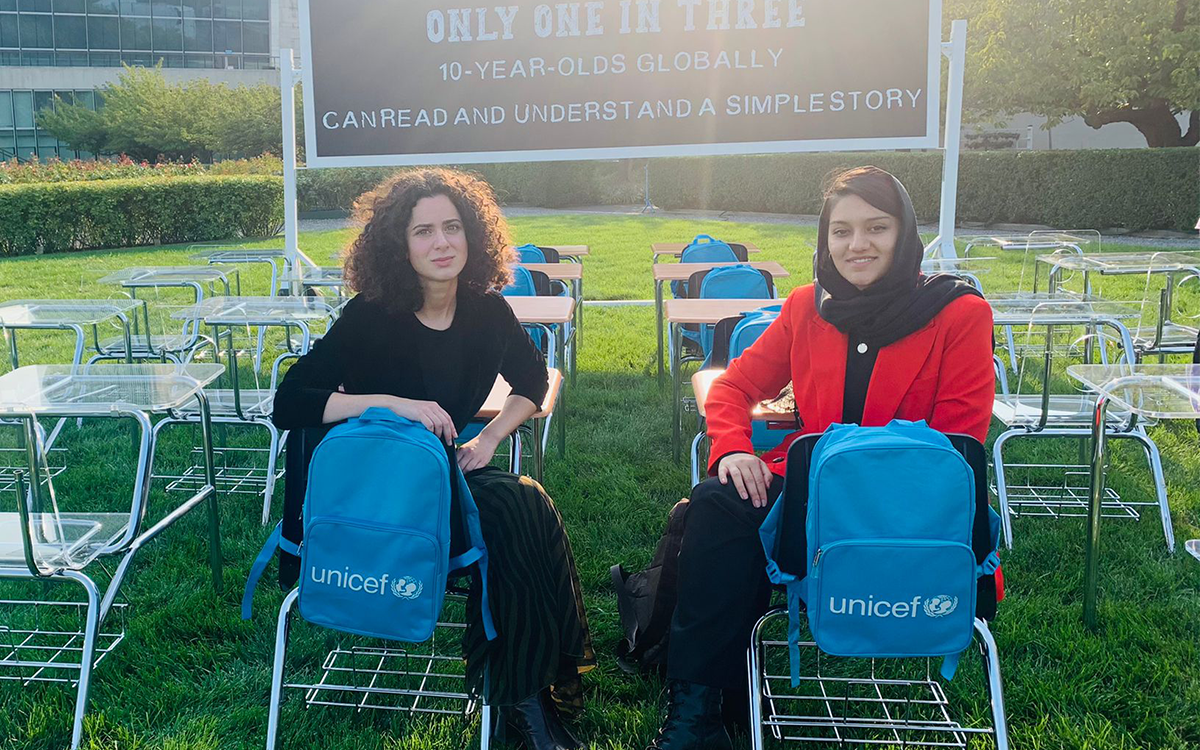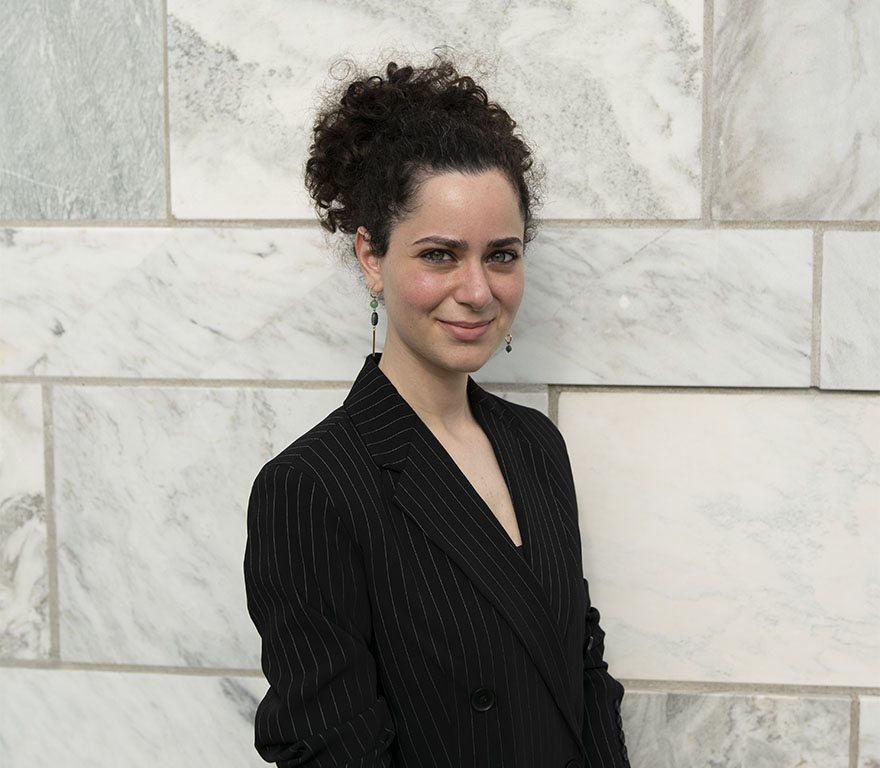Bringing Education for Women Back to Afghanistan
In December 2022, when the Taliban’s ban on tertiary education took effect in Afghanistan, Aisha Khurram was about to finish her law degree. She and her classmates mourned the painful repeat of history. Two decades of progress for women’s rights—which in 2020 related to more than 100,000 Afghan women enrolled in public or private universities and more than 2,000 female lecturers at higher education institutions—were being reduced to ashes.

Khurram felt she had no choice but to leave the country to complete her education. On August 28, 2021, she said tearful goodbyes to her family and set out at night with a small backpack containing everything she could take from home. With her brother accompanying her, she traveled the length of Afghanistan. They crossed through eight provinces and hoped not to be stopped at checkpoints. Finally, after months of travel, she arrived in Germany.
Khurram spent many months looking for any possible way to restart her education before finding a special scholarship program for recently displaced Afghan students. She understood that resuming her studies was an exceptional privilege available to only a very few Afghan girls. Her excitement at the opportunity was accompanied by a deep sense of survivor’s guilt; millions of Afghan girls were being deprived of their basic right to education.
Afghan girls cannot and should not wait for the political and humanitarian crisis to be resolved to access an education. For them to survive the ongoing crisis, education is as necessary as food and water. Aisha Khurram
Across the world, Lika Torikashvili ’22, the founder of the Network of Former Youth Delegates to the United Nations and a fellow former youth delegate to the UN, was sailing with the Semester at Sea program when the ban on education took effect in Afghanistan.
“As a long time youth activist, a founder of a youth non-profit, and as a female leader, I felt the urge to get involved and look for solutions,” Torikashvili said.

Working with spotty internet access, Torikashvili stayed up late at night for phone calls with her mentor and advisor Susan Sgorbati to brainstorm solutions.
“It was from the Semester at Sea ship that I reached out to my only colleague in Afghanistan, Aisha Khurram, to offer online education as a possible solution,” Torikashvili said.
E-learning in Afghanistan
Khurram joined with Torikashvili to initiate a program entitled E-learning in Afghanistan. They organized a closed-door meeting to connect UN officials, young female students from six different regions of Afghanistan, and representatives from Bennington College and Bard College Berlin, where Khurram was enrolled.
The purpose of the meeting was to create a platform where students could share their stories, concerns, and suggestions on how to circumvent the imposed restrictions on girls’ access to education. Soon after the meeting, Bennington College helped overcome the first major challenge by pledging to offer online scholarships to six female students.
This pilot program, which offered accredited online courses free to the students, proved the feasibility of an online education approach and raised Khurram’s and Torikashvili’s hopes. After a year of work, the group with academic support from Bennington College and others launched a distance-learning initiative for nine women in Afghanistan.
The program ran into its second major challenge when it became clear that most students could not fully benefit from the courses offered due to the lack of stable internet connection and functional electronic devices. Providing the necessary equipment to each individual is costly and logistically complex.
After months of lobbying, the collaborators secured a $15,000 grant from UNESCO to implement the project for ten Afghan girls in Afghanistan. UNESCO funding provided technology and data packages. Youth activists on the ground in Afghanistan assumed considerable personal risk to deliver technology. With electronic devices, power banks, and stable internet connections, nine students in Kabul took specially designed, real time courses in the fields of International Human Rights Law, Computer Science, Photojournalism, Humanities, and Management from Vermont-based Bennington College in the spring semester of 2023.
The personal impact is clear. One student, who is not being referred to by name in order to protect her safety, said, "I see these online classes as a golden chance and an opportunity to study and continue my education, which is so important for me." She continued,
It’s clear that it’s impossible for me to be in a classroom inside of Afghanistan. This program gives me a chance to study from home through e-learning and online scholarships with proper facilities. E-learning in Afghanistan student
Another student said, “The class that was most effective for our level of knowledge was the International Human Rights Law class. We learned a lot in this class about rights, what rights are, what rights we have, what we can do with these rights, and how these rights help us. We learned about different types of rights. This class was more beneficial and most effective for me.”
The next step is to scale up the e-Learning program in order to enroll 200 more students in accredited degree courses across different provinces of Afghanistan. Khurram, Torikashvili, and youth activists and students in Afghanistan are calling on individuals and the international community to support the project.
Considering the magnitude and scale of injustice that is being done to women and girls in Afghanistan, it is urgent more than ever before to embrace the power of technology in order to mark a new era of education that goes beyond borders, an era that ensures young girls from refugee camps or those living in crisis situations can have equal access to education. Lika Torikashvili '22
Support exhibits faith in education and, more importantly, in young women’s capacity for change. Because, as Khurram says, “these two forces, when combined, possess the power to illuminate the darkness and liberate humanity from the shackles of totalitarianism.”